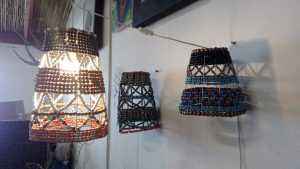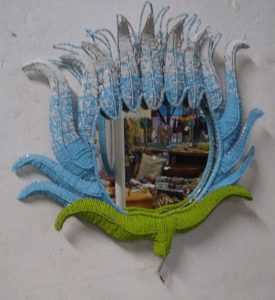Job creation, international and local players, culture and creativity, oh what a mix of fortunes and opportunities both for the African entrepreneurs, foreign economic refugees, and citizens of South Africa.
It is difficult to quantify, not yet! Why? Because of mixed reactions. Some treat it as an encroaching weed in an organised arena, others view it as a source of crude ideas to tap from and yet some indulge into it and make mixed fortunes. It is a matter of being well connected to one’s point of view versus a fight for survival.
Some are funded by well-wishers, others self-funding and yet the hustlers do not come in short supply. Among those who are involved with subsistence farming, food security is a priority. During the planting season, rural arts and crafts production stops and farming take over however with continuous crop failure, this culture may be going through drastic changes as food becomes a direct result of crafts sales.
Depending on who you know and who knows you, cultural industries in Africa are defined as those with major outputs of symbolic values including fine arts, film as well as crafts not forgetting jewellery design, fashion and publishing.
One needs to take a higher-level lead to a broad industry of creativity. Information is the major input which is spiced by cultural goods and services, bringing in software and internet services. If information technology gets affordable to rural Africans, it brings them closer to the global arena with its advantages and sharks.

It is complicated for any organisation to brag about being on top of the scenario, not even UNESCO as there are still many upcoming, neglected and secrete individuals in rural African villages and townships. Creativity in Africa has many faces including those perceived as professional, upcoming, subsistence and the unknown (undocumented).
Compare a tattoo artist in Cape Town to a deep African cultural village artist who uses a sharp object to cut through the flesh of a child or perhaps adult, done voluntarily or involuntarily for beauty or traditional purpose. The process is met with mixed reactions. The whole system may run out of choice, survival or norms within the prevailing environmental conditions.
Fairness may prevail when what drives people to do what they do is thoroughly understood by the observer, funder (buyer) or facilitator as well as the performer.
Culture and creativity in Africa and perhaps other societies of the globe have been cemented by feelings, prevailing common agreements and domination. Those whose voices are heard far and wide across the globe stand the chance of survival.

